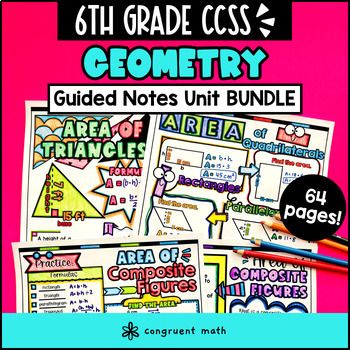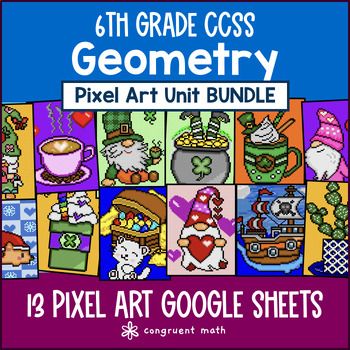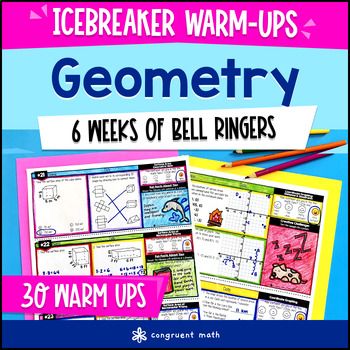Want more ideas and freebies?
Get my free resource library with digital & print activities—plus tips over email.
Join for Free Resources →
$15.00 · Extensions sold separately
Ever wondered how to teach geometry concepts in an engaging way to your 6th-grade students?
In this unit plan, students will first learn about coordinate graphing, quadrants, and calculating distances on coordinate planes. They will then progress to understanding the area of triangles and various quadrilaterals.
Each lesson helps students master the unit through artistic, interactive guided notes, check for understanding activities, and culminates with real-life examples exploring how geometry is used in the real world.
It's an exciting way to teach geometry concepts while comprehensively meeting 6th-grade Common Core standards.

$15.00 · Extensions sold separately
After this unit, students will be able to:
Before this unit, students should be familiar with:
Students will learn about the area of rectangles, trapezoids, and parallelograms.
Students will learn how to calculate the area of triangles.
Students will learn about calculating the area of composite figures made up of rectangles, trapezoids, parallelograms, and triangles.
Students will learn to calculate the volume of rectangular prisms with whole number and fractional edge lengths.
Students will learn about surface area of rectangular prisms and 3D shape nets.
Students will learn about coordinate graphing, quadrants, distance calculation on coordinate planes, and how to plot points to create polygons.

$16.99
Students practice geometry including graphing on coordinate planes, identifying quadrants, finding distance between points, reflection across and x-axis or y-axis, finding area and perimeter of polygons and composite figures, finding volume of rectangular prisms, and finding surface area and 3D shape nets for rectangular prisms, triangular prisms, and pyramids with this 6th Grade CCSS Geometry Pixel Art Unit Bundle. Contains 6 products with 13 pixel art activities total for a complete 6th grade Common Core geometry unit.

$5.99
Engage your 6th grade students with FUN daily math review warm ups activities focused on finding area of quadrilaterals, area of triangles, surface area and volume of rectangular prism, and coordinate graphing (quadrants & distance)! These math bell ringers contains practice on the geometry unit. It's perfect for daily math practice, spiral review, or quick test prep, aligned to CCSS and TEKS.
Unit 6
Equations & Inequalities
Unit 8
Data & Statistics
Get my free resource library with digital & print activities—plus tips over email.
Join for Free Resources →